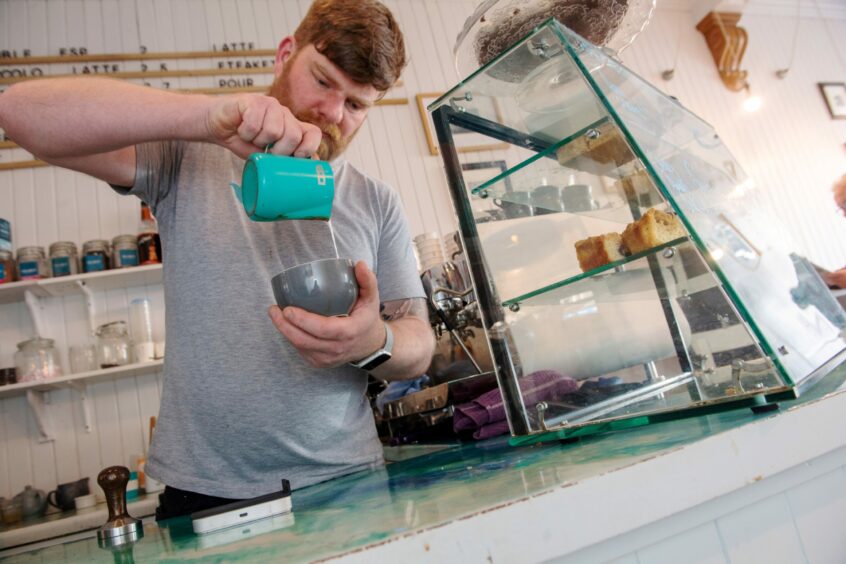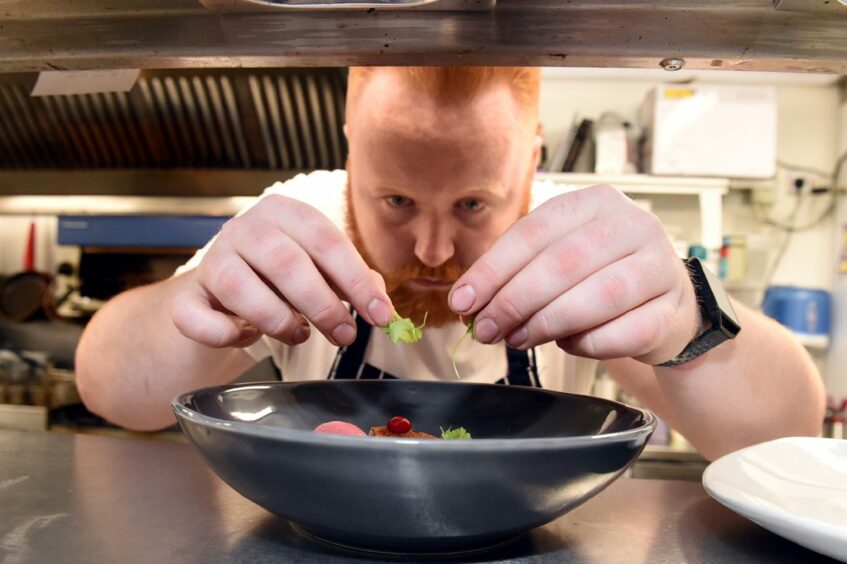For Steph Murray, one of the warnings the north-east was facing a head chef shortage was when applicants started demanding outrageous salaries.
“A head chef can’t really be expected to be getting any more than £40,000,” says Steph, whose family owns The Dowans Hotel in Aberlour and is in the process of setting up a second in Archiestown.
“But we’ve had people demanding things like fifty, sixty thousand. It’s just unsustainable as a business, and means other staff aren’t getting the chance to earn a worthy wage.”
Staff shortages have plagued the hospitality industry since the end of last year’s lockdown. The causes are well-known – Brexit pushing out European hospitality staff and the Covid pandemic decimating livelihoods to the extent that many people switched careers permanently.
But, according to those in the industry, an acute lack of experienced chefs has created a skills vacuum that is handing more leverage than ever to those at the top.
But though this is good news for kitchen professionals, who have been chronically underpaid for years, inexperienced chefs are also using it as an opportunity to grab a coveted head role even though they lack the necessary skills.
The ‘unicorn’ head chef
Across the north-east there is concern that standards may slip.
“A good head chef is like a unicorn,” says Colin Redman, who chefs at his own Birdhouse Cafe in Banchory. Colin worked for many years in hospitality before setting up his own business and knows just how hard it is to lead a kitchen.
“You have to have team skills, time-management skills, people management skills and money management skills,” he says. “There are very few businesses where you would give somebody the amount of control that a head chef has.”
For years, says Colin, restaurants have underpaid head chefs – and other kitchen staff – compared to other professions.
The current skills shortage has shifted the balance, and finally head chefs are getting better pay and working conditions.
But others are taking advantage.
“There are a lot of guys now who were kind of opportunistically using a shortage of chefs to try and demand more money than their experience dictates they should be getting,” Colin says.
“Owners have to take some responsibility for this, of course, because they have gone for many years underpaying.”
Opportunity amid the shortage
It definitely seems as if the tables have turned,” says Kyle Jackson, the head chef at the Albyn in Aberdeen. “The chefs are calling the shots with the money.”
Kyle, who has worked in kitchens since he was 14, says that in past job interviews and in a more competitive employment environment, he has accepted whatever terms were on the table.
Now, employees are so keen to hire that they are willing to “grit their teeth and hope it’ll be ok”.
“People are blagging their way in,” he adds.
Kyle maintains that standards remain high in local kitchens, but concedes that shortages are putting pressure on staff as there are fewer people to do the work.
Meanwhile, higher wage expectations among staff add to the long list of cost increases for restaurants post-pandemic.
“Menu prices are going up,” says Kyle, who doesn’t blame wage increases but points to big hikes in supplier costs. “Restaurants are having to make adjustments.”
Steph from The Dowans points out that all of her costs as a business owner have to go back to the customer.
“There’s only so much that a customer will be willing to pay for a pint or for food, and past a certain point it’s just unsustainable for business,” she says. “I think [wage expectations] have to come back a little so that we’re meeting halfway.”
Meanwhile, the situation with head chefs is having knock-on effect on other roles.
Steph, who is hiring for the kitchen at her family’s new Hotel 1881, warns that some staff who have found themselves in a head chef’s role through attrition and shortages are unwilling to accept a lesser role despite their lack of experience.
“That means that right now, we’re really struggling to get anybody less than head chef,” she says.
“Sous chefs are non-existent.”



